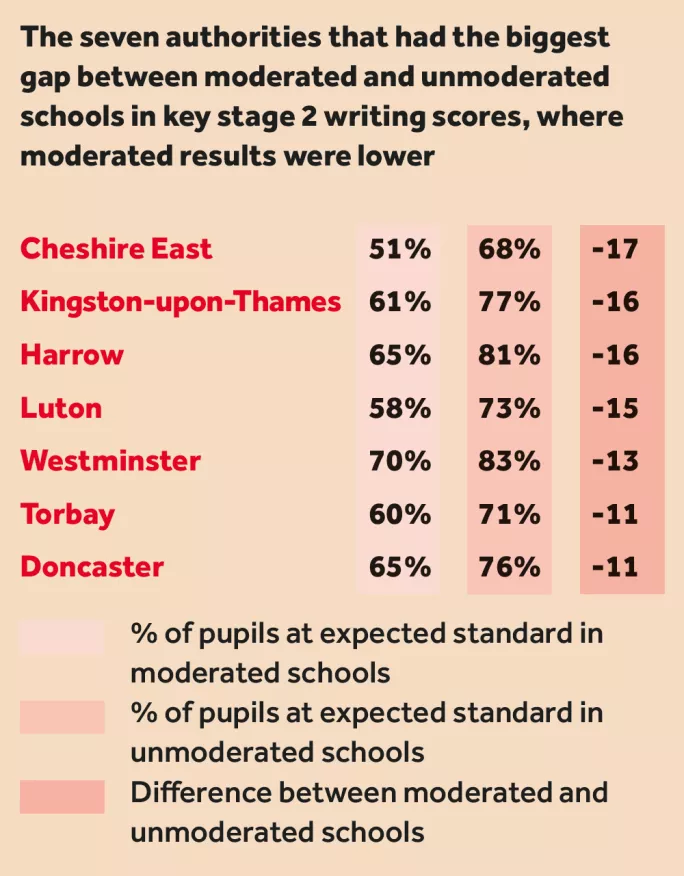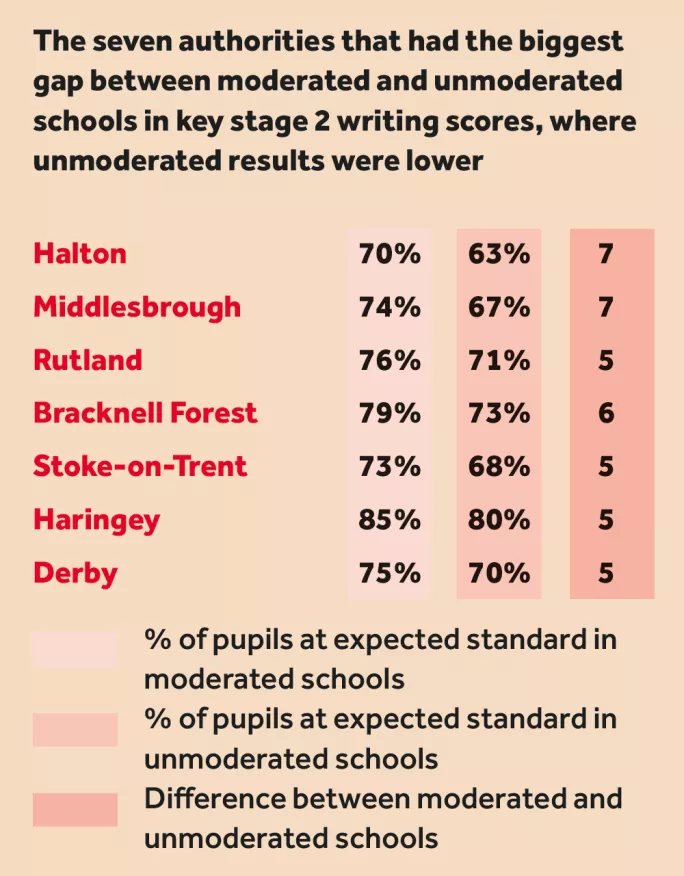With the new system, there really is no comparison

When the writing test for 10- and 11-year-olds was dropped in favour of teacher assessment, few tears were shed. But with the overhaul of the teacher assessment system last year, concerns have been growing about just how secure the comparisons between schools are.
Nationally, 74 per cent of 10- and 11-year-olds reached the expected standard in writing last year. But concern about variations in how different local authorities applied the new guidance led the Department for Education and Ofsted to say that writing results alone would not be used as a basis for intervention.
Now, a new analysis of the writing results in primary schools shows many local authorities had far fewer children reaching the expected standard in schools that were moderated (by the authorities) than those that were not visited.
Michael Tidd, Tes columnist and deputy head of Edgewood primary in Hucknall, obtained the figures by using freedom of information requests to discover which schools were moderated. The results show that in 108 of the 138 authorities that replied, schools that were moderated had lower results on average than those that were not.
But the finding that ought to give ministers most cause for concern is the large variation between local authorities in the gap between moderated and unmoderated schools.
That gap - in terms of the proportion of pupils reaching the expected standard in writing - ranges from -17 percentage points in Cheshire East to +7 in Halton and Middlesbrough. In 12 authorities, moderated schools have average scores that are 10 percentage points or more lower than unmoderated ones. That gap is at least 6 percentage points in 31 areas. But in another 30 local authorities the situation is reversed and moderated schools have average writing scores that are higher than unmoderated primaries.
‘Impossible circumstances’
Tidd says that the variation demonstrates “the impossible circumstances” that local authorities face. “I think the biggest factor in the variations is that the whole charade was so open to interpretation and there was no clear direction on all of this from the centre,” he says.
“My personal view is that some of the local authorities that appear to have ‘lowered’ results were probably giving a fairer representation of what children are able to do independently.


“The guidance was so tardy and opaque last year that what we really learn from all this is not that any one local authority was better or worse at moderation than any other - merely that they were all trying to do a very difficult job in near impossible circumstances.”
The analysis comes after Education Datalab raised alarm bells last year over the discrepancies between reading and writing results within different authorities.
Differences in scores may also reflect the variations in how schools were chosen to be moderated. All local authorities follow the same government guidance on moderation, but this says that the sample of maintained schools chosen should be based on “local intelligence” with triggers including: a new senior leadership team, Ofsted concern and unusual patterns of attainment, as well as how much time has passed since the school was last moderated.
A DfE spokesperson said: “The interim teacher assessment frameworks were designed, through discussion with curriculum experts and teachers, to produce reliable outcomes in place of the old levels system.
“The STA is continuing to evaluate the interim teacher assessment frameworks, including listening to feedback from the profession.”
You need a Tes subscription to read this article
Subscribe now to read this article and get other subscriber-only content:
- Unlimited access to all Tes magazine content
- Exclusive subscriber-only stories
- Award-winning email newsletters
Already a subscriber? Log in
You need a subscription to read this article
Subscribe now to read this article and get other subscriber-only content, including:
- Unlimited access to all Tes magazine content
- Exclusive subscriber-only stories
- Award-winning email newsletters